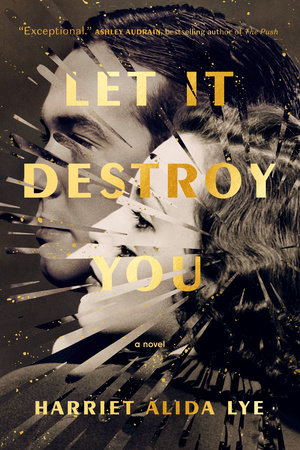READERS GUIDE
Introduction
Book Club Discussion Questions1. Why do you think the author chose to tell August and June’s story through their recollections over the course of one night, rather than starting from the very beginning of their lives in a more traditional, linear fashion? What is the significance of memory in the structure of this novel?
2. Consider the epigraph — “Do not destroy what you cannot create” (Leó Szilárd) — alongside August’s line: “Find what you love, and let it destroy you.” (232) How do these quotes both mirror and differ from each other? How do they play out across the novel?
3. When a young August asks: “How will I ever know that they really know me?”, his mother responds: “You’ll never really know, August, you just have to try. You have to send a little boat across the water, from your island to theirs.” (7) In what ways do the characters in this novel try to reach one another? At what points do they fail or succeed?
4. Death is an ever-present fear for August and June throughout the war, the Holocaust, and Leora’s illness — a fear that Leora does not yet know. In the same way that she refuses to talk about the Holocaust (65), June strives to keep the knowledge of death and loss away from her daughter. Discuss the relationship between trauma and silence, and the ways in which silence can be an act of both fear and love.
5. On page 44, August says: “It felt like the idea was floating around in the air, fully formed, a butterfly on the wind, and I happened to be the one who trapped it. If I hadn’t been there, someone else would have instead.” How does August apply this rationale to the decisions he makes throughout the novel? What does this quote say about his sense of culpability in the creation of the cobalt bomb?
6. Compare and contrast the ways that August and June speak about Leora, and the memories they each have of her. What do their differences reveal about them as parents, and as individuals?
7. What do you think about the conversation June has with the journalist Michael Harrop, and her surprise at her own defense of August’s innocence?
8. “Science is politics.” (54) Do you agree with August’s statement? How might it be applied to other fields, such as art? Is it possible for any discipline to exist apart from politics?
9. “I wasn’t a perfect wife. I wasn’t even a good wife, much of the time. I cheated on him (oh, of course I haven’t told you that), and lied to him about it.” (190) At several points in the novel, June admits to deliberately omitting information in her account to the reader. What is the significance of the author’s decision to reveal June as an unreliable narrator? How might it relate to June’s assertion of individuality and power?
10. In the aftermath of her marriage falling apart, June says: “shards of a broken bowl serve no purpose . . . . I was no longer a bowl, but I had never been a bowl, and no longer even had any need for bowls.” (209-210) On its own, a bowl is rarely the center of attention; it merely serves to contain and support its contents. How might this relate to June’s sense of identity as August’s wife?
11. On page 47, August says: “My brain was alive with anticipation, my mind already writing the history books about what I expected would happen.” On page 221, June says: “History is written by the victors and inherited by the losers, not the mothers.” What do these quotes tell us about each character and how they see themselves? How do gender norms shape their views of the future, and the actions they take in the present?
12. At the very end, we see that June will view August’s decision to convict himself as a victory for August, while August views it as a surrender. What does this tell us about how they’ve both changed over the course of the novel?
13. In the Author’s Note, Harriet Alida Lye writes of Trude Weiss: “From what I read she seemed like a victim in her marriage, and I wanted to imagine the ways in which she might have found her power.” (241) In what ways do we see the character of June finding her power throughout the novel? In what ways is this power inextricable from both freedom and guilt?

